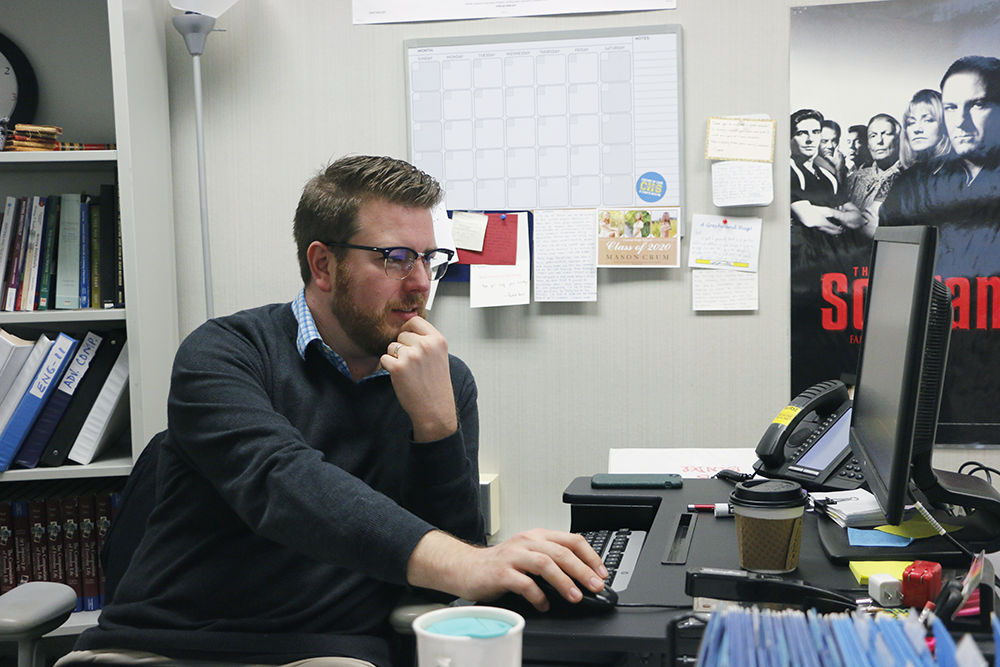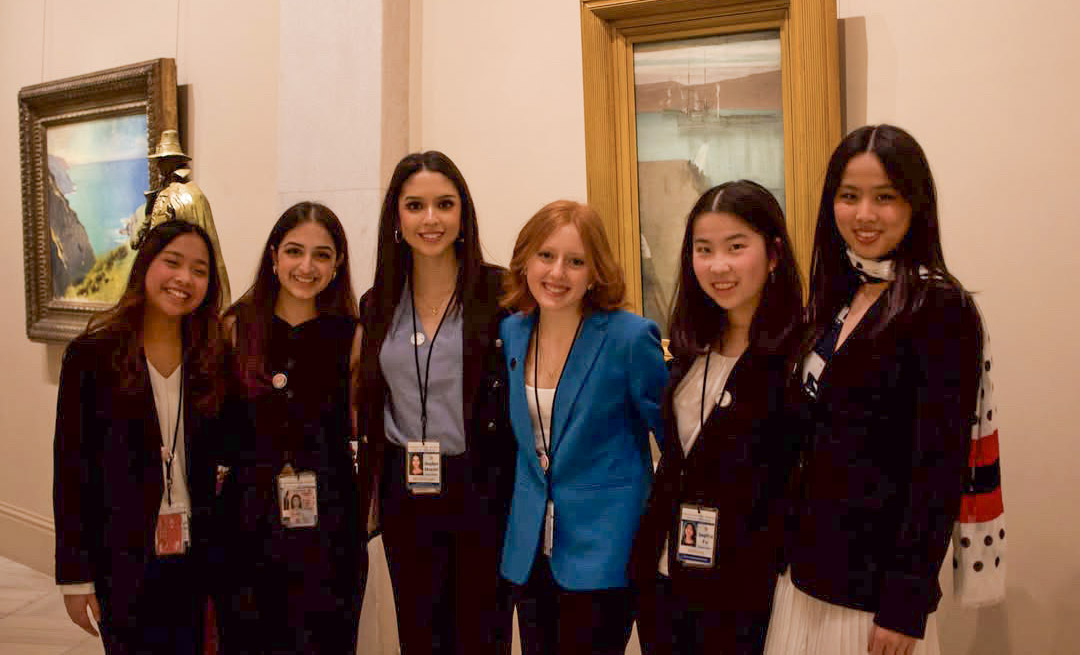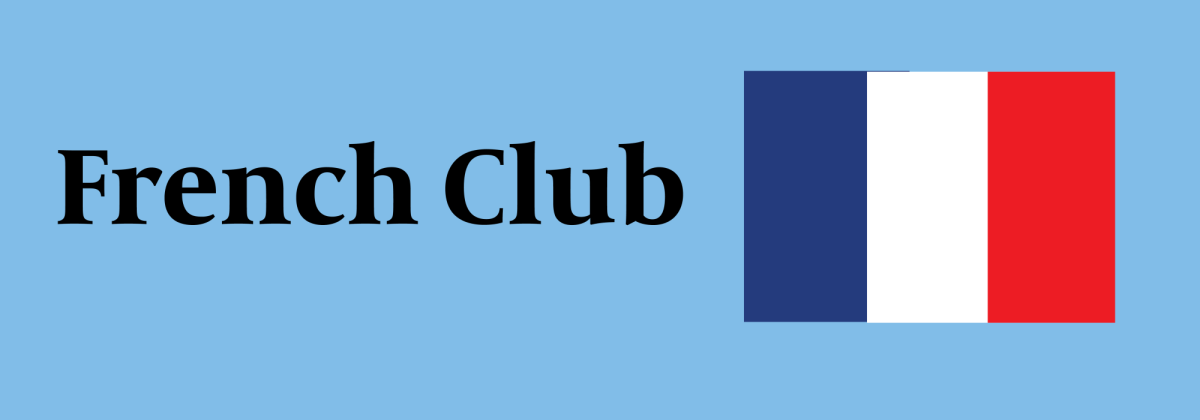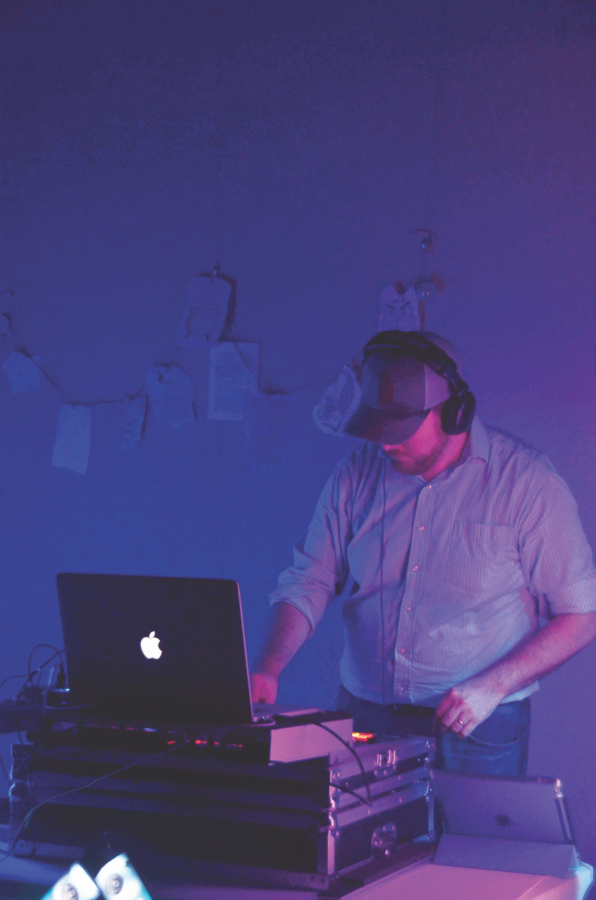How did you first get into Djing?
I first got into DJing when I was 14 years old. I just really enjoyed music. I wanted to do something, but I really didn’t find my niche. I was in (a) band but it wasn’t my passion. The other reason was my stepfather was a radio DJ and I really liked watching him play around with all the equipment. He was just doing his thing there and that was the first time I realized you can kind of do some really creative things with music that wasn’t necessarily just your own. I also got really into electronic music and started making my own music there and so between all that I got really into the DJ culture and doing fancy things with music. I got to a point where I got really cheap equipment to start with. I was pretty terrible at it at first, but I even started doing it in high school to where I DJed my junior and senior prom when I was still in high school, which was pretty cool. And then just kept doing it throughout college.
What do you like about DJing?
I like never being predictable. I like the improvising (aspect). On your own as a DJ, you really do improvise because you respond to the crowd. You respond to what they’re responding to. You play to that, and sometimes you find interesting pictures of songs. That’s really cool to be surprised when you’re practicing a piece of music, over and over and over again. With DJing, there’s some element of that you’re still in control, but there are the occasional surprises.
Do you own your own DJing business?
Yeah, it’s just me doing business as a side job, so I try to do it regularly, but I don’t do it every day.
How often do you DJ?
I practice a couple (of) times a week. I’ll just play for myself after school or something for like an hour or two. It usually helps me blow off steam. I love doing that.
Why did you decide to continue once you became a teacher?
I just enjoyed it too much to not do it. Also, the equipment’s really expensive, and I needed to justify a reason for spending all that money on it. It was very fun and it is also an easy way to make some really good money.

How would you describe the DJing community?
There are different areas of DJ, I would say, you could almost call it “DJ communities” because there are multiple ones. There’s the community that does parties and weddings like I do. There’s that community and those are kind of the for-hire DJs. They typically play what the client wants and designs experiences around a client’s needs. There is also the Club DJ circuit. That’s the kind you think playing at festivals and the kind of DJ who gets to play what they want to play.
What advice would you give to someone just starting out as a DJ?
I would say to keep practicing. (They) should build a good library. What I mean by that is, know what songs really get people dancing. The kind of songs that are crowd-pleasers, but also at the same time to look out for those hidden gems that people maybe don’t know about. Because, ultimately, my thought is to give people things that are familiar to them but also want to also play things that are stimulating. That’s what good DJ mixing is.
Any last thoughts?
There’s a big difference between a real DJ and a fake DJ. There are some who basically just pre-record their set and then press a button and go. Then, there are other DJs who really truly are improvising and are trying to do things on the fly. The other thing I would say is that sometimes, I think some people don’t respect (DJing) as a potential art form. However, I really think there is room for that and that it can be used as an art form.
How can people contact you?
They can email me or they can go to my website. I’ve been hired by clubs and people here just as the word has gotten out now.






























![AI in films like "The Brutalist" is convenient, but shouldn’t take priority [opinion]](https://hilite.org/wp-content/uploads/2025/02/catherine-cover-1200x471.jpg)











































![Review: “The Immortal Soul Salvage Yard:” A criminally underrated poetry collection [MUSE]](https://hilite.org/wp-content/uploads/2025/03/71cju6TvqmL._AC_UF10001000_QL80_.jpg)
![Review: "Dog Man" is Unapologetically Chaotic [MUSE]](https://hilite.org/wp-content/uploads/2025/03/dogman-1200x700.jpg)
![Review: "Ne Zha 2": The WeChat family reunion I didn’t know I needed [MUSE]](https://hilite.org/wp-content/uploads/2025/03/unnamed-4.png)
![Review in Print: Maripaz Villar brings a delightfully unique style to the world of WEBTOON [MUSE]](https://hilite.org/wp-content/uploads/2023/12/maripazcover-1200x960.jpg)
![Review: “The Sword of Kaigen” is a masterpiece [MUSE]](https://hilite.org/wp-content/uploads/2023/11/Screenshot-2023-11-26-201051.png)
![Review: Gateron Oil Kings, great linear switches, okay price [MUSE]](https://hilite.org/wp-content/uploads/2023/11/Screenshot-2023-11-26-200553.png)
![Review: “A Haunting in Venice” is a significant improvement from other Agatha Christie adaptations [MUSE]](https://hilite.org/wp-content/uploads/2023/11/e7ee2938a6d422669771bce6d8088521.jpg)
![Review: A Thanksgiving story from elementary school, still just as interesting [MUSE]](https://hilite.org/wp-content/uploads/2023/11/Screenshot-2023-11-26-195514-987x1200.png)
![Review: "When I Fly Towards You", cute, uplifting youth drama [MUSE]](https://hilite.org/wp-content/uploads/2023/09/When-I-Fly-Towards-You-Chinese-drama.png)
![Postcards from Muse: Hawaii Travel Diary [MUSE]](https://hilite.org/wp-content/uploads/2023/09/My-project-1-1200x1200.jpg)
![Review: "Ladybug & Cat Noir: The Movie," departure from original show [MUSE]](https://hilite.org/wp-content/uploads/2023/09/Ladybug__Cat_Noir_-_The_Movie_poster.jpg)
![Review in Print: "Hidden Love" is the cute, uplifting drama everyone needs [MUSE]](https://hilite.org/wp-content/uploads/2023/09/hiddenlovecover-e1693597208225-1030x1200.png)
![Review in Print: "Heartstopper" is the heartwarming queer romance we all need [MUSE]](https://hilite.org/wp-content/uploads/2023/08/museheartstoppercover-1200x654.png)



